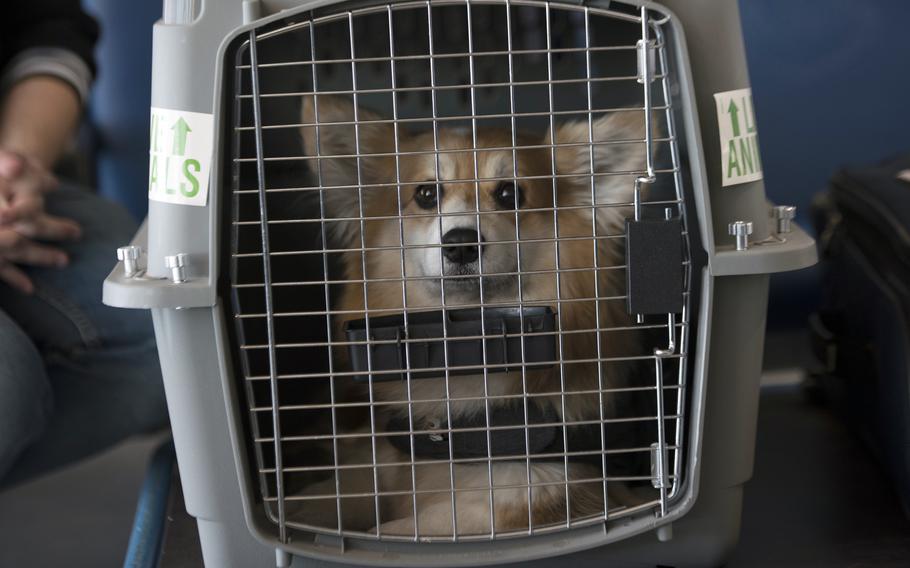
Fritzi, a corgi, sits in a dog crate at Ramstein Air Base, Germany, May 29, 2020. (Taylor Slater/U.S. Air Force)
Families moving to their next duty stations this year are unlikely to be reimbursed for the cost of moving their pets, according to a Marine Corps news release.
Money to pay that expense is wending its way through Washington’s bureaucratic pipeline.
Buried in the National Defense Authorization Act for fiscal year 2023 is a provision to permit the military to reimburse service members’ pet relocation costs up to $550 within the U.S. and a maximum of $4,000 outside the continental United States.
The Marine Corps released a statement June 9 “to manage expectations” prior to the start of this year’s peak moving season. The program won’t take effect until January, according to the statement.
“I think it's great that the Marine Corps released something on an official platform,” Liz Hensel, founder of Leave No Paws Behind USA, told Stars and Stripes by phone Wednesday. “Because it just shows that we are moving forward in the right direction.”
The group assists military families with resources and pet transportation costs to and from overseas.
"I've been advocating for this change for the last four years,” Hensel said. "Sen. Cory Booker (D-N.J.) said, ‘Yes, let's do something about this,’ and then we were able to make this legislative change."
The Marine Corps release laid out the process for getting the pet entitlement into the Department of Defense Joint Travel Regulations.
“It must first be approved by the Services' Military Advisory Panel members, Service Principals, and then finally by the Chairman of the Per Diem, Travel, and Transportation Allowance Committee,” the release said.
The reimbursement is at the final approval level, a Department of Defense spokeswoman said Wednesday. She could not say when the approval process would be completed.
“The item is pending Per Diem Travel and Transportation Allowance Committee Chair approval,” Jade Fulce told Stars and Stripes by email.
The Joint Travel Regulations were last updated June 1 but included no information about pet reimbursement.
“We're still waiting on the Joint Travel Regulations to kind of tie up the verbiage and then release it in that publication because none of the rest of the services can do anything with the reimbursement until it's in the Joint Travel Regulations,” Hensel said.